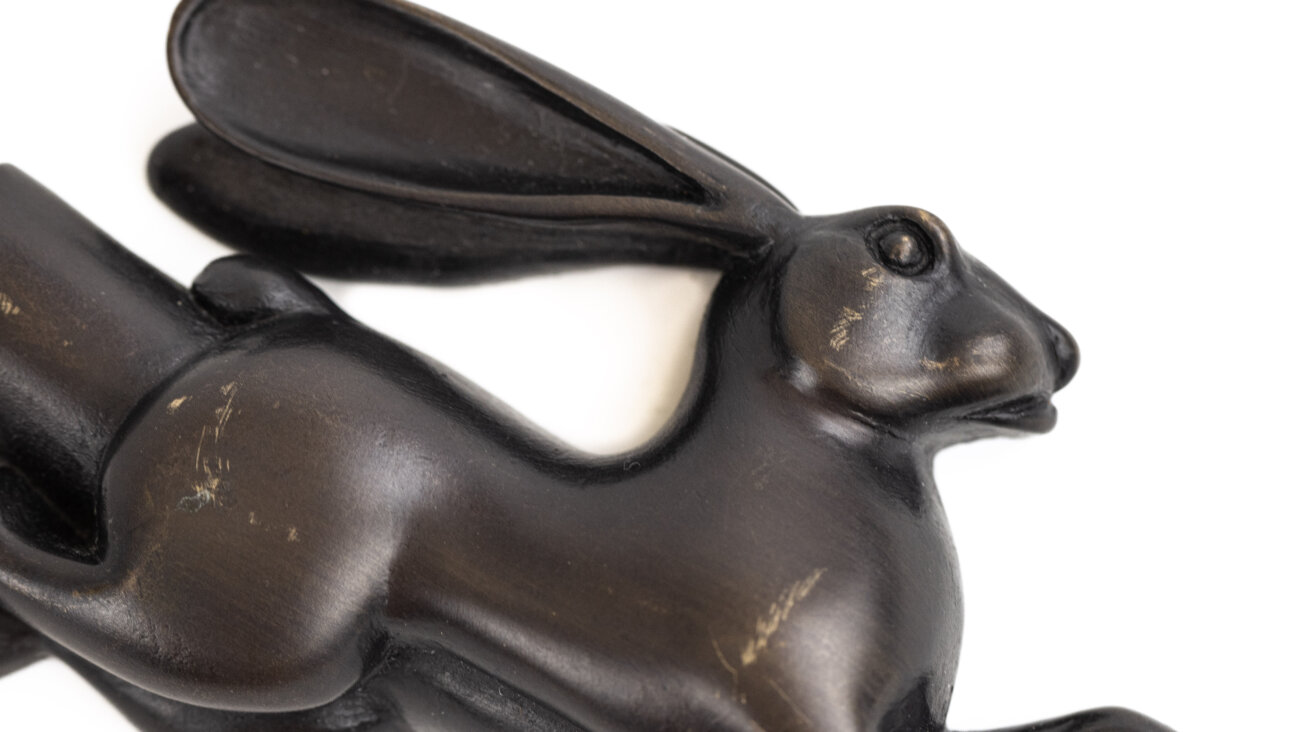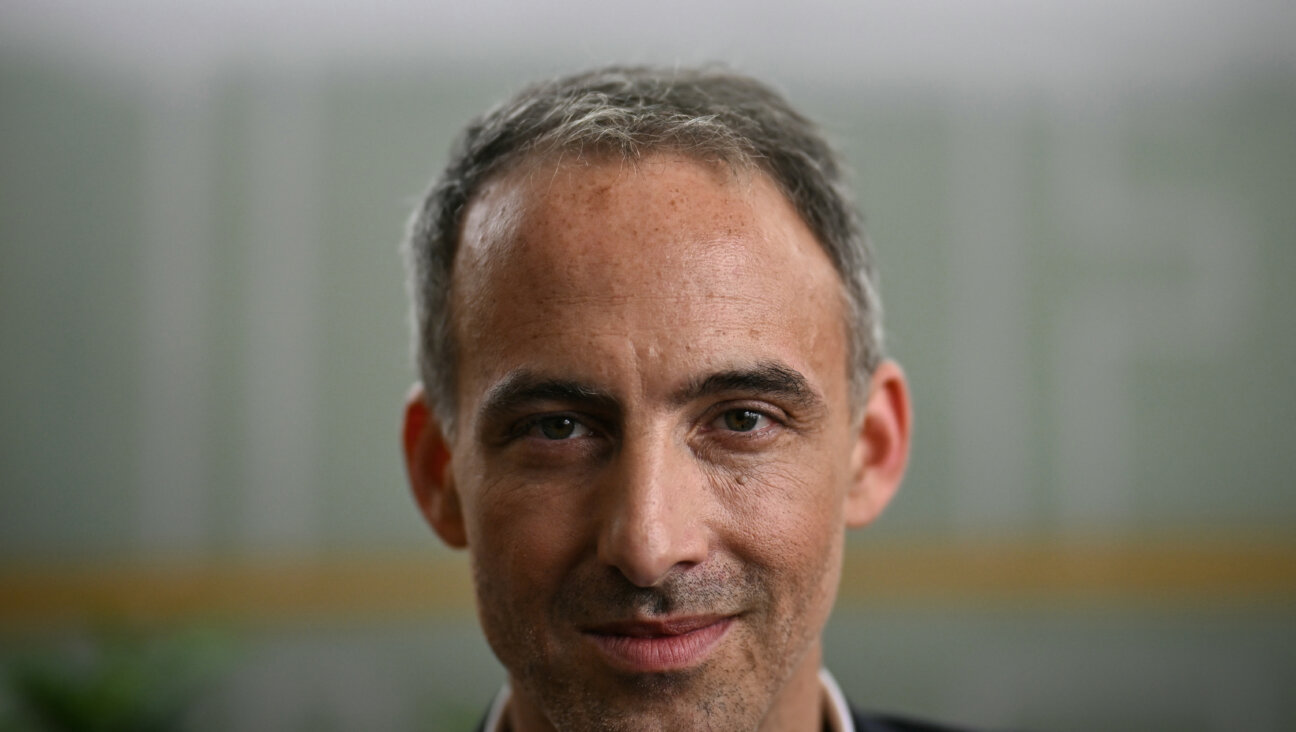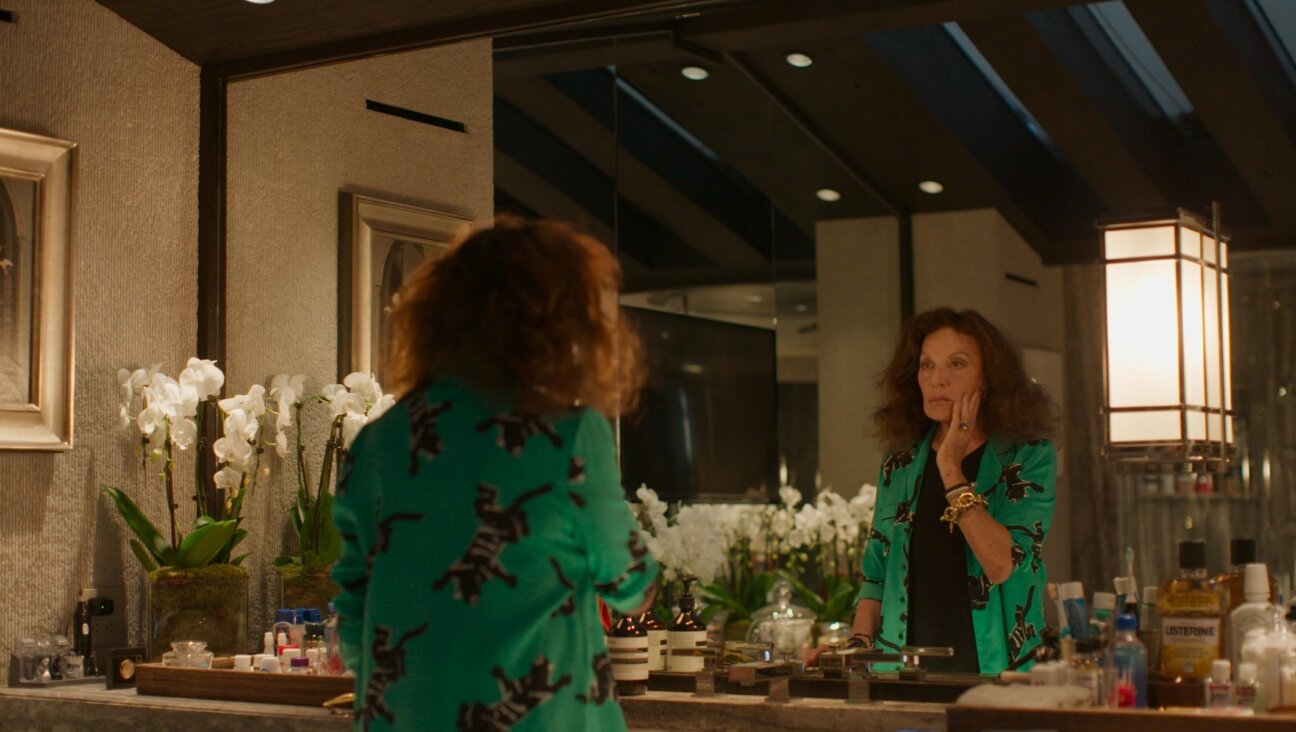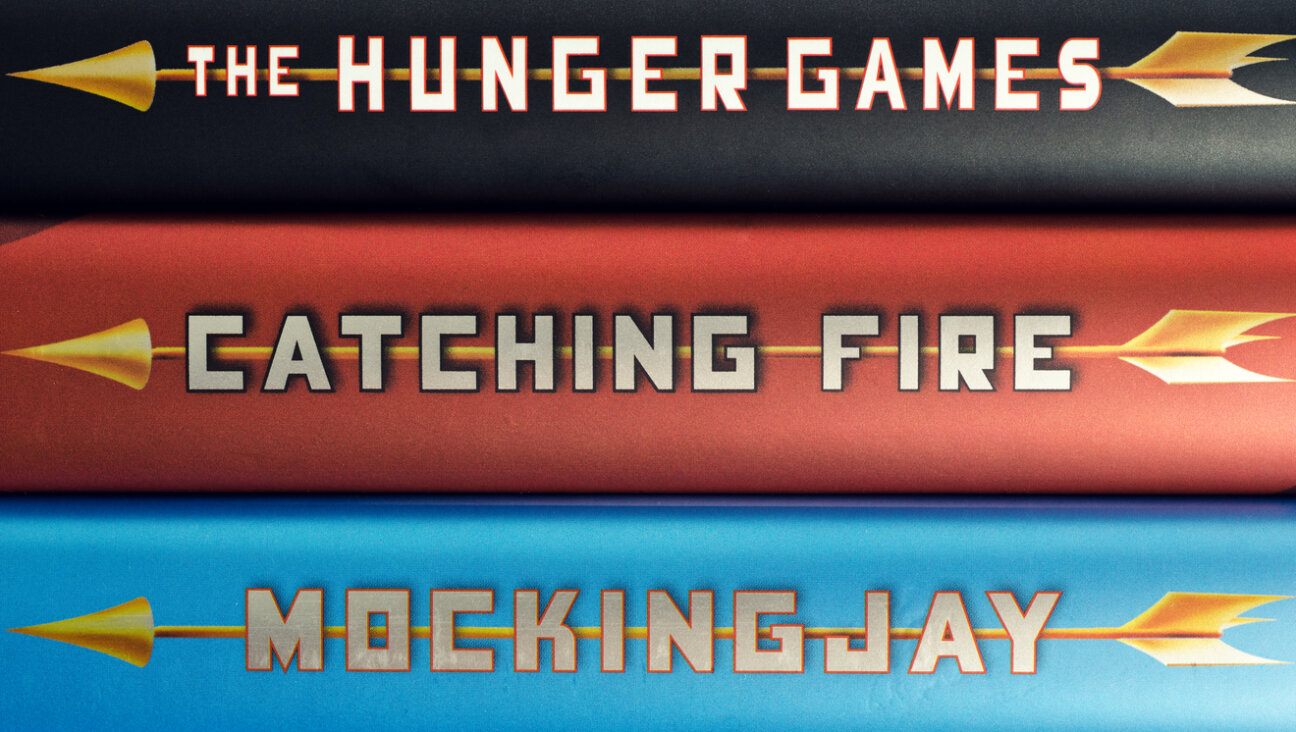A Rabbi’s Daughter Grapples With the Commandment to Honor Her Father

Image by Courtesy of Sara Sherbill
Today I found out my father is dying. I know, I know—we are all dying, but in this case, the facts are more specific. Several weeks ago, my father was diagnosed with an advanced form of cancer and given six months to live—two years at most. I learned this information one spring afternoon when I was at the creek with my two-year-old son. We were crouched down at its sandy edge, listening to the sound of the water as it rushed over the rocks when I got a call from my uncle.
“It’s serious,” he said. “Your dad wants to talk to you.”
The plain truth is that I have not seen or spoken to my father in three years. Much of my adult life has been devoted to learning how to create a safe boundary with him. And mostly, that’s meant distance. But now he is dying. Soon, I will not need to maintain my boundary — it will already be drawn for me, with absolute finality.
The Bible tells us to Honor thy father and mother, that your days may be long upon the land. It is the only one of the Ten Commandments that promises the reward of a long life to its adherents. As the daughter of a rabbi, I was always aware of my obligation to treat him with the deference he was due simply by virtue of having given me life. I once secretly prided myself on exactly this — my ability to look beyond his failings and treat him with honor, just as we’re commanded. But what if it seems that honoring your father is not lengthening your life but shortening it? What if it feels like honoring your parent means dishonoring yourself?
As a child, I was in awe of my father. On Friday nights, I alone accompanied him to synagogue while my mother stayed home with my younger siblings. To the world — or at least to our little Jewish Midwestern suburban world — my father was a respected rabbi, a pillar of the community; he had a beautiful wife and was the proud father of five bright — no, outstanding — children, known not only for their intelligence but for their humor and good manners. Their home was open to all, full every Friday night with Sabbath guests, overflowing on Seder night and holidays.
But in our world — the world of me and my sister and brothers—he was someone else entirely. Rages were my father’s expertise — they could come anytime, without explanation. My mother would scream back until he hit her and then she was left cowering. I was never good at cowering, which meant he came after me—there were chases, slammed doors pushed open, slaps, crying, screaming, more screaming, a knock to the ground, the burn of the belt on the back of the legs. Sometimes there were bruises or red criss-crossing welts. Sometimes there was the matter of an apology. The next day, everything went back to normal.
I gleaned my father’s humanity from the way he interacted with his congregants. The reassuring smile, the word of comfort—these were the province of his flock, not his family. The bar mitzvah student struggling with his speech, the engaged couple with dueling in-laws, the young girl struck down with incurable cancer — these were the individuals who received his patience, his compassion, his love.
Carrying the burdens of so many, my father seemed crushed. Or perhaps he felt crushed to begin with. Perhaps, like many of his colleagues, that was the reason his chose this profession in the first place: another person seeking to salve his own wounds by bandaging the wounds of others.
I knew my father had a problem. I just didn’t know what it was. My grandmother, in whom I’d confided, had multiple theories: he was depressed; vitamin D deficient, he needed more time in the sun (he was from Florida, after all, and the frigid Chicago winters were hard on him); he’d chosen the wrong profession; my mother didn’t understand him. I had no way of knowing if any of this was true, and it didn’t matter because regardless of the cause, my job remained the same: to play the role of the rabbi’s daughter like my life depended on it — which, of course, it did.
My fractured, split-screen reality left me broken. My brokenness filled every part of me. When I went away to college, my brokenness came with me. When I moved halfway across the world, when I got my first job, when I got married, when I got divorced, when I got married again, my brokenness came with me. It was not just buried deep inside of me, it was my insides — the muscles and tendons and veins, down to the cellular level. In many ways, I was replicating the model my father had set for me: on the outside, I had a good job and threw great dinner parties, but inside I felt shattered.
My distance from my father turned into radio silence soon after my mother left him, and our periodic phone calls turned into rants about how my mother had wronged him, how everyone had wronged him. “Why did your mother leave?” he’d demand into the phone as I waited at the dentist’s office or rode in a taxi , as I sweated, pregnant, on a park bench, feeling a panic attack coming on. “You know why, Dad.” But he would insist he didn’t, and beg for me to explain. There were harassing voice messages, emails mentioning suicide.
For years, my father taught a weekly class on the second-century text “The Ethics of Our Fathers,” whose primary teaching is:
Who is rich? One who is satisfied with his lot
But my father was not happy with his lot. And because he was not happy, none of us were allowed to be, either.
What do I do now? Do I visit my father in an effort to achieve that elusive, illusory goal of “closure”? Or do I do it for him? To let him know he’s not alone? Do I take a plane and stay in a shitty hotel with a half-filled pool to see him one last time, knowing the whole while how he will try to guilt me, blame me, or threaten me; knowing too that he could just as easily play it the other way, telling me how proud he is of me, how sorry he is, knowing hearing these words could break me — could actually, finally once-and-for-all break me. Would I go through all of this just to say goodbye?
In the top-left drawer of my desk I have a photograph of my father as a young man. It’s the 70s and he has already discovered religion: he wears a large, embroidered yarmulke, a wide-lapelled shirt with rolled-up sleeves and low-slung pants. He is slim and good-looking and he turns to the camera as though to ask a question. It is this image that reminds me that before he became my father, he was a man — a man with a soul, a man with his own history of brokenness trying to figure out how to live his life with purpose.
It is said that for God, the Creator of the Universe, time does not exist. Because God is Eternal, He is able to see all of time at once, absent chronology. And when He looks at his creations, He sees us not as we are at any given moment, but in the totality of who we were, who we are, and who we will be, so that there is no inherent separation between childhood and adulthood, between the pure souls who come into the world and the bruised, embattled people we become.
My entire life I honored my father the best I could. Even now, I seek to honor him still, though I do not know if or how I will breach the silence. An older, wiser friend once told me that the best gift I can give my father is to pray for him. And so I bless you, Dad. I pray for peace on your journey, wherever it may take you.
Sara Sherbill’s writing has appeared in Tablet, The Jerusalem Post, Zeek, and elsewhere.
A message from our Publisher & CEO Rachel Fishman Feddersen

I hope you appreciated this article. Before you go, I’d like to ask you to please support the Forward’s award-winning, nonprofit journalism so that we can be prepared for whatever news 2025 brings.
At a time when other newsrooms are closing or cutting back, the Forward has removed its paywall and invested additional resources to report on the ground from Israel and around the U.S. on the impact of the war, rising antisemitism and polarized discourse.
Readers like you make it all possible. Support our work by becoming a Forward Member and connect with our journalism and your community.
— Rachel Fishman Feddersen, Publisher and CEO





























